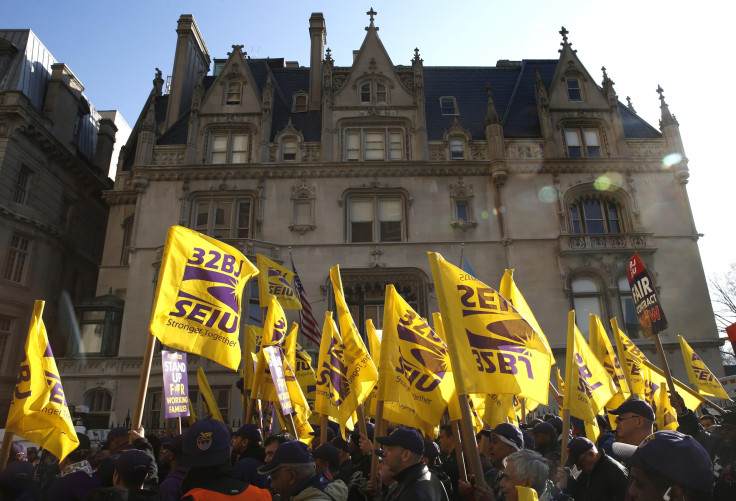The End Of Unions? SEIU Plans Major Cuts After Trump Win

The U.S. second-largest labor union, the Service Employees International Union, revealed it was planning massive cuts in response to the economic policies of President-elect Donald Trump, Bloomberg reported Tuesday. In an internal memo dated Dec. 14 and later revealed by Bloomberg Businessweek, SEIU President Mary Kay Henry told employees to the union would have to “dramatically re-think” after Republicans made electoral gains last month and attained significant political influence in the country.
The union, with an annual budget of $300 million, was reportedly planning for an immediate 10 percent budget cut in the beginning of 2017. "Because the far right will control all three branches of the federal government, we will face serious threats to the ability of working people to join together in unions,” Henry wrote. “These threats require us to make tough decisions that allow us to resist these attacks and to fight forward despite dramatically reduced resources.”
Henry went on to state that the union would "plan for a 30 percent reduction" in budget by 2018, when SEIU would gather support in hopes of influencing more favorable electoral outcomes in the 2018 midterm election and the 2020 presidential election. A spokesperson later said that a Trump victory meant the union would have to defend itself from "forthcoming attacks on working people and our communities under an extremist-run government."
SEIU, which represents about 2 million healthcare, public service and property service employees across the nation is considered one of the most politically influential labor unions in the U.S., however, organized labor has experienced a number of major setbacks in recent years, especially at the hands of Republicans. While the union's "Fight for $15" campaign to raise the minimum wage witnessed success in places such as New York and California, Republicans have also passed "Right to Work" laws that limit the ability of unions to maintain security agreements with employers and gather funds from its members.
Despite the historical bad blood between Republicans and labor unions, Trump received the highest electoral support from union households since Ronald Reagan in the 1980s. About 43 percent of union households chose Trump, trailing his Democratic opponent Hillary Clinton by only 8 percent.
© Copyright IBTimes 2025. All rights reserved.






















